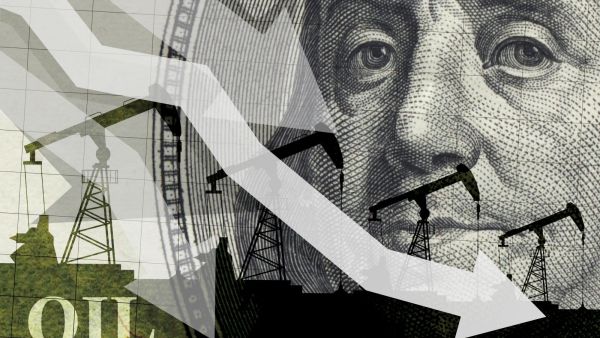ALBAWABA – Oil prices slipped on Tuesday as news that major central banks will be holding interest rates higher for longer began to take its toll on the market, despite tighter supplies, news agencies reported.
Brent crude futures fell $0.38 to $92.91 a barrel at 0400 GMT, according to Reuters, and West Texas Intermediate (WTI) crude futures traded $0.34 lower at $89.34.
"Fears of an economic recession may again dominate the oil market’s movement due to surging US bond yields following the Fed’s hawkish stance last week," Tina Teng, a market analyst at CMC Markets in Auckland, told Reuters.
The world's top economic policy makers, the United States (US) Federal Reserve (Fed) and the European Central Bank (ECB), have over recent days reiterated their commitment to fight inflation. They both reaffirmed that high interest rates may persist longer than previously anticipated, Reuters reported.
Notably, higher interest rates slow economic growth, which curbs oil demand. They also make it more expensive to import oil for countries that settle their transactions in other currencies.

Oil prices are impacted by simple demand-supply dynamics, which are affected by much more complex macroeconomic factors - Shutterstock
WTI edged lower after slipping 0.4 percent on Monday, according to Bloomberg.
Meanwhile, surges in closely watched timespreads of oil prices and hefty premiums for some physical crude cargoes highlighted growing scarcity in the market, Bloomberg reported. But these were tempered by the dollar, rising to the strongest level this year, on top of US interest rates staying higher for longer.
“The breathless rally of recent weeks has run out of steam after factoring in the major bullish indicators,” Vandana Hari, founder of Vanda Insights, told the New York-based news agency.
“But at the same time, there are no compelling factors to exert significant downward pressure” on oil prices, Hari added.
Oil’s forward curve is pointing to a growing supply deficit, Bloomberg reported. WTI’s prompt timespread is now $1.53 a barrel in backwardation, a bullish pattern, more than double the level on September 15.
Separately on Monday, rating agency Moody's said that a US government shutdown would harm the country's credit. This warning comes on the heels of a downgrade by Fitch a month ago in the wake of the US debt ceiling crisis.
While supply remains tight as Russia and Saudi Arabia have extended production cuts to the end of the year, Moscow on Monday eased its temporary ban on gasoline and diesel exports.









